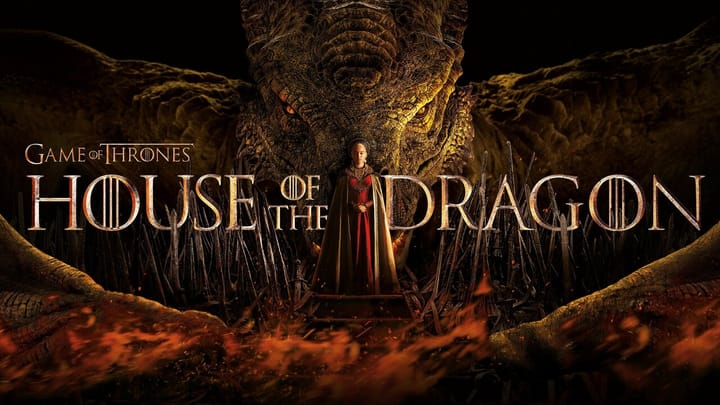The Almanack of Naval Ravikant Summary
Happiness = health + wealth + good relationships + learning

Happiness = health + wealth + good relationships + learning
Part 1: Wealth
Getting rich is about knowing what to do, who to do it with, and when to do it.
The most important thing is to figure out what you should work on. You should not start doing a lot of hard work until you figure out what you should be working on.
Seek wealth, not money or status. Wealth is having assets that earn while you sleep. Money is how we transfer time and wealth. Status is your place in the social hierarchy.
Make money in any way possible. Don’t get a job just for status. Ignore people playing status games. (People who rent big houses, expensive cars, etc will look higher status than you but ignore them.)
Learn to sell. Learn to make products.
Unique knowledge (Naval calls it specific knowledge, but others call it purpose, meaning, Robert Greene’s key to finding it: What did you love to do as a child?) comes from deeply pursuing your genuine curiosity and passion rather than what is hot right now.
- It is often highly technical or creative. It cannot be outsourced or automated.
- Go deeper and deeper into your niche until you are the best in the world at one very very specific part of your niche.
- Make yourself a unique product that people want and they will buy derivates of you: they’ll buy your books, read your tweets, watch you YouTube videos, etc. Give value and people will give back to you — rule of reciprocity.
- Don’t copy: you want to be unique and authentically yourself.
- Naval makes the “Zero to One” argument — by making something new, there is no competition because nobody can beat you at being yourself.
- Ask yourself: Would you still be doing what you’re doing if it didn’t make you money?
There are 4 types of leverage: Capital, employees, code (software), and media.
Code and media are the best kind of leverage. Use code or social media to make products that earn while you sleep.
- Make books, blogs, tweets, videos, podcasts.
Creating a software business or a media business makes you easily employable. Develop an online reputation for expertise in a field.
The best salespeople are pasionate about what they're selling. When selling, describe the problem that people have and position yourself as an expert. The audience will assume you have the answer and they will ask to buy your products and services.
The most important skill for getting rich is becoming a perpetual learner. You have to know how to learn anything you want to learn.
Time management: Write down everything you do for a day and then write a +,-, or = to show if it is positive, negative, or neutral. Do more positive things and fewer neutral and negaitive things.
“It’s much more important today to be able to become an expert in a brand-new field in nine to twelve months than to have studied the “right” thing a long time ago. You really care about having studied the foundations, so you’re not scared of any book. If you go to the library and there’s a book you cannot understand, you have to dig down and say, “What is the foundation required for me to learn this?” Foundations are super important.”
“Foundations: Basic arithmetic and numeracy are way more important in life than doing calculus. Similarly, being able to convey yourself simply using ordinary English words is far more important than being able to write poetry, having an extensive vocabulary, or speaking seven different foreign languages.”
Knowing how to be persuasive when speaking is far more important than being an expert digital marketer or click optimizer. Foundations are key. It’s much better to be at 9/10 or 10/10 on foundations than to try and get super deep into things.
- Read broadly. Study the foundations of everything and then go deep into a technical field that is trending right now to make a lot of money.
Build personal reputation, not status. Reputation is when people think you are competent and ethical — this makes people trust you. Status is when people think you are rich or cool or powerful — that’s fine, but it doesn’t make people trust you or want to work with you. Focus on coming across as competent and ethical.
Invest into worthwhile relationships. Pay for things when doing deals with important business partners or relationship partners or friends. When you find the right people, stay with them for years or decades.
Make sure that what you’re learning or doing is applicable to your goals. Use the Pareto principle but strictly applied to your goals.
If you want to be part of a great tech company, then you need to be able to SELL or BUILD. If you don’t do either, learn. If you can do both, you will be unstoppable.
The super wealthy of our generation use code and media leverage: Joe Rogan’s podcast, PewDiePie’s videos, Mark Zuckerberg’s software. They’re all millionaires and billionaires. Once you make money, multiply it by investing in stocks and crypto.
Whenever you can in life, optimize for independence rather than pay.
Avoid risks: Avoid jail, losing all of your capital, and injuring your body.
Get paid for an outcome, not for hours worked. You should be more like a contractor than an employee.
You should only ever be doing 3 things: earning, learning, or doing what you want. Be very selfish with your time.
You need to learn things so that you are right more often. If you're right 85% of the time and you used to be right 75% of the time, your leadership is much more valuable. You need to learn useful things. Copywriting, marketing, coding, engineering, and finance are useful.
3 big life decisions: where you live (city), who you’re with (relationships), and what you do (job/business).
Value freedom over everything else.
In jobs, the most successful people get early promotions to VP, director, or CEO. If you don’t get early promotions, it can be harder to catch up later in life. It is good to join a smaller company early on because there is nothing keeping you from getting promotions because the hierarchy is more fluid.
- The social network you build at your job is the most important part of choosing what company to work for. To make a lot of money, be on the cutting edge of trends in technology, design, and art.
3 kinds of luck:
- Hard work luck: You just work hard and stir up the pot and hope that an opportunity comes of it.
- Keen eye luck: You are knowledgeable in a field so you know when an opportunity arises and you can take advantage of it. Ex) Watch the financial markets to find the investment of a lifetime.
- Personal brand luck: You make a social media personality that is unique. Unique mindset, unique character, unique brand. And then people will reach out with offers.
- The key is to combine all 3. Work hard and stir the pot + keep an eye out for opportunity + make a personal brand on social media.
- Make yourself appear as an expert online. Actually do the work to be an expert on the subject.
Business networking is a waste of time. Instead, make something and then show it online and people will come.
Clear thinking comes from studying the basics of many different fields. More advanced ideas need to be able to be derived from the basics, otherwise you’re just memorizing and you will not be able to implement it.
Some of Naval's recommended reading:
Study Farnam street blog. Study Shane Perrish book recommendations. Study evolution, game theory, and Charlie Munger. Matt Ridley. Nassim Taleb. Benjamin Franklin. All have good mental models/decision making books.
Evolution, thermodynamics, information theory, and complexity have explanatory and predictive power in many aspects of life.
Reading science, math, and philosophy one hour a day will probably put you in the top earners in 7 years.
When you get an “Ah ha” moment while reading, try to reword it into an aphorism and post it on Twitter.
Part 2: Happiness
Happiness is a skill.
Meditation is a skill.
Relationships/boundaries/leadership are skills. You need to figure out how to structure relationships. This will help you in business management and family. Principles by Ray Dalio explains how to structure relationships.
Habits (especially removing bad habits) and the people you spend time with impact your happiness.
Read every book on happiness.
Sleep, diet, and exercise have a big impact on mood and happiness.
Legacy doesn’t matter. Maximize your happiness in this lifetime.
Doctors won’t make you healthy. Sleep
Nutritionists won’t make you slim. Diet
Teachers won’t make you smart. Read
Gurus won’t make you calm. Meditate
Mentors won’t make you rich. Invest
Trainers won’t make you fit. Exercise
Listen and absorb but don’t emulate — make it your own, make it unique.
When everyone is sick, we don’t consider it a disease.
Walking meetings on FaceTime/Zoom or in person are better than traditional meetings.
Take cold showers — they constantly train you to be ok with doing uncomfortable things.
Meditate before bed.
Gratitude, social connection, and physical touch are biologically proven to make you feel better.



Comments ()